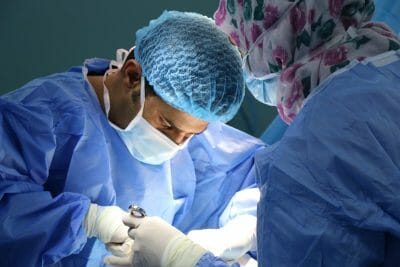If you have been recommended to have a vasectomy or are considering surgery, then you may feel anxious about the unknown. You’ve heard your doctor talk about performing this procedure but now it is time for everyone involved – including yourself – to come together as a team and prepare for an operation that will change your life forever.
In this blog post, we will explain how best to prepare for a vasectomy to make sure it goes smoothly with minimal risk of complications. From understanding the pre-operative process to what items should be on hand when receiving care, we’ll discuss everything that could help ensure a successful outcome. Read on and let us show you how!
Understand all the details of the procedure and its risks
Before deciding on a vasectomy, it is important to understand all the details of the procedure and its risks. So make sure you get thorough information from medical professionals on what to expect before and after the operation, how long recovery may take, and any risks or side effects that might occur. It’s also wise to enquire about the success rate for this specific procedure and confirm that surgeons follow established safety protocols when taking part in it. Taking time to do research and ask questions beforehand is essential for ensuring a safe and successful outcome of your vasectomy.
Ask questions to your doctor to clarify points that are not clear
Navigating through medical treatments can be an intimidating experience, but it’s important to make sure you understand exactly the procedures and processes that are involved. This website can also be a great source of information offering advice on what to discuss with your doctor and background info about vasectomy. Asking questions is key to achieving this so do not hesitate to ask your doctor to clarify points if they are not clear.
Schedule a physical exam with your doctor before the procedure
Before committing to a vasectomy procedure, it’s important to schedule an appointment with your doctor for a thorough physical exam. Your doctor will have the expertise to evaluate any potential risks associated with the procedure and advise you accordingly. A physical exam is also necessary for accurate insurance coverage for the vasectomy. Don’t take chances with your health; make sure to visit your doctor before booking that appointment.
Get a list of medications that you should avoid taking before and after the surgery
Everyone responds to surgery differently, so it’s important for anyone undergoing a vasectomy to follow their surgeon’s pre- and post-surgery instructions carefully. One of the most important orders may concern medications that can interfere with the operation or healing process; this could include both over-the-counter and prescription medications. It is wise to get a list from your doctor of any drug that you should avoid taking before or after your vasectomy surgery. You’ll also want to make sure they have an accurate record of any other drugs or supplements you take – this can help keep everyone on the same page when it comes time for everything to go ahead smoothly!
Make sure you have enough time off work for recovery
If you’re considering getting a vasectomy, it’s important to plan for adequate recovery time from work. A vasectomy is a common procedure and generally has minimal complications, however, you’ll feel much better sooner if you take it easy for the first couple of days following the procedure. Get plenty of rest and avoid strenuous physical activity until your doctor gives the okay.
While some recovery times may vary depending on an individual’s experience, it’s generally recommended that men plan for at least 3-4 days off resulting in minimal disruption to any work commitments. Taking enough time off from work upfront can help ensure a smoother recovery process overall!
Set up a comfortable area for resting at home post-op
Anyone who has undergone a vasectomy will want to factor in adequate rest post-op. Comfort is key, so don’t just lie down on your regular bed. Instead, set aside an area with plenty of soft blankets and pillows where you can relax in a reclined position with your feet propped up. Make sure that whatever surface you’re resting on provides good support for the lower back, hips, and legs. Having an extra cushion or pillow for comfort wouldn’t hurt either!
It is important to remember that knowledge is power when preparing for any medical procedure. Many aspects and details need to be taken into consideration when planning any type of surgery and it’s not something that should be taken lightly. Always be sure to ask questions and speak with your healthcare provider thoroughly so that you are well-informed before proceeding with any procedure. Go in prepared with a physical exam, an understanding of potential risks and recovery times, as well as a comfort zone set up at home post-operation. With these tips in mind, hopefully, you go into the process with confidence knowing that your safety and recovery will always come first!
